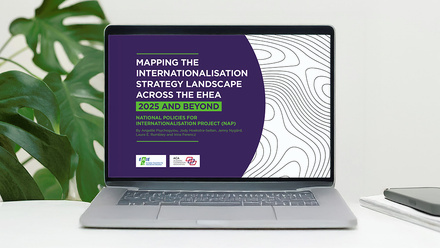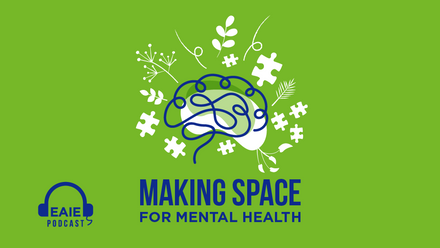COVID-19: What Erasmus students want you to know

By now it is clear that the COVID-19 outbreak has had very wide consequences, for the world of higher education and beyond. Some of the implications for the higher education sector in Europe, particularly in relation to international education activities, were made apparent in a survey and report by the EAIE titled 'Coping with COVID-19’, which was published in March.
But what about the COVID-19 crisis from the perspective of international students, a group that has suffered through the crisis quite directly? Many students have had their mobilities cancelled; others have continued with their mobility experiences but with their classes moving online. Still others have been instructed to return home, even though in some cases this was not possible due to closed borders.
Gaining insight
To get an overview of how international students have dealt with the situation, the Erasmus Student Network (ESN) – comprised of 530 student organisations in 42 European countries focused on helping international students arriving in their new host countries – conducted a survey directly targeting the students and trainees who were abroad at the outbreak of the virus. The ESN survey was administered between 19 March and 30 March 2020 and gathered nearly 22,000 answers from all over Europe.
The findings provide clear indications of how students experienced the impact of the COVID-19 crisis in relation to their exchange programmes in this period, including such dimensions as programme cancellations and curtailments, the quality of information provision by home and host institutions, impacts on coursework, and financial ramifications. The study also highlights the major problems encountered by students in this timeframe, including issues connected to health and well-being, racism and discrimination, and accommodation.
More than 6000 students reported facing loss of transportation home
Among the key findings, more than 37% of students reported experiencing at least one major problem connected to their exchange, with problems running the gamut from the tangible to the more personal or interpersonal in nature. For example, more than 6000 students reported facing loss of transportation home. Challenges accessing basic needs, such as food and sanitary products, was cited by 1430 students; another 1260 respondents indicated they had faced cancellation or closure of their accommodation.
Meanwhile, nearly one quarter (24%) of Italian respondents said they had experienced discrimination based on their nationality, while 19% of Asian students indicated the same. A significant “41.2% of the respondents reported that they had experienced anxiety and stress to a great extent or to a very great extent” during the previous two weeks. Notably, the majority (65%) of the 4664 students who reported their mobility experience had been cancelled, indicated not being fully certain what would happen to their grants in the face of the mobility cancellation.
What can be done?
The results of the ESN survey will hopefully help stakeholders like universities, Erasmus+ National Agencies, the European Commission and others to adjust their policies and their communication efforts to improve the situation as much as possible for the internationally mobile students who have been affected by the pandemic. To advance this work, the ESN report provides ten specific recommendations that encourage action across several key areas of interest.
We must make sure that the most vulnerable international student populations are not unfairly victimised by the COVID-19 crisis
First and foremost, information provision efforts should be strengthened and the availability of support measures (from the financial to the psychological) should be clarified and easily accessible; indeed the financial burden placed on students is a key area of concern that needs immediate attention. The challenges and opportunities of online learning need to be appropriately addressed, while matters of diversity and inclusion must also be carefully attended to in this situation, to make sure that the most vulnerable international student populations are not unfairly victimised by the COVID-19 crisis. Ultimately, “unity in diversity” needs to be the rallying cry of the recovery process post-pandemic, and dedicating resources to a proper evaluation of how this crisis has been handled will be vital to learn from it and “to support the recovery of international student mobility” moving forward.






